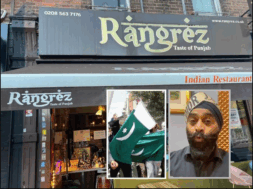
Manas Dasgupta
NEW DELHI, Sept 5: The Supreme Court on Thursday (September 5, 2024) reserved its verdict on bail plea of the Delhi chief minister Arvind Kejriwal challenging his arrest by the Central Bureau of Investigation (CBI) in the alleged Delhi excise policy scam.
A Bench comprising Justices Surya Kant and Ujjal Bhuyan while considering the bail plea on August 14 had denied him the interim bail and had kept the hearing for September 5 granting the CBI time to submit its counter affidavit.
In its response, the central agency underscored that the AAP supremo’s arrest was necessary due to his “evasive and non-cooperative” attitude to questions about his alleged involvement in the case. It also argued that Mr Kejriwal cannot claim parity with his co-accused in the case, considering his distinct role.
Mr Kejriwal’s counsel, senior advocate A.M. Singhvi, during the hearing, said the CBI did not arrest Kejriwal for two years after the ED first registered the case in August, 2022. He is only arrested on June 25, while already in judicial custody in the ED case.
Additional Solicitor General S.V. Raju said unlike former Deputy Chief Minister Manish Sisodia and BRS leader K Kavitha, the Delhi CM did not go through the grind of seeking bail in the trial court and then working his way upwards to the High Court and the Supreme Court.
The Delhi CM was initially arrested by the Enforcement Directorate (ED) on March 21 in connection with the alleged excise policy scam, following the Delhi High Court’s denial of his plea for interim protection from arrest. On July 12, the Supreme Court granted him interim bail in the ED case; however, he remains in custody due to his subsequent arrest by the CBI. He was taken into CBI custody on June 26 from the Rouse Avenue Court in Delhi and was later remanded to judicial custody on June 29.
In his rejoinder submissions, Mr Singhvi contends that the CBI overlooked the provision of Sections 41 of the CrPC (arrest without warrant) when arresting Kejriwal. He further asserts that the CBI’s arrest did not satisfy other conditions as stipulated under Section 41(1) of the CrPC, such as the prevention of evidence tampering or ensuring Kejriwal’s presence in court—all of which were irrelevant given his custodial status.
Taking exception to such a submission, Justice Bhuyan says that it is not for Mr Raju to second-guess what the Supreme Court intends to do. Justice Kant further remarks that whatever the Bench were to decide, it would not be to the detriment of the judicial institution.
Mr Raju contended that the Delhi CM has not included even one page of the chargesheet against him in his bail plea. This, according to him, constitutes concealment of facts and a fit case for denial of bail. He further submits that if the Supreme Court were to grant bail to the AAP supremo then the Delhi High Court would be “demoralised.” “The High Court did not consider his (Kejriwal’s) case on merits and if the Supreme Court grants him bail on merits, it would be demoralising for the High Court”, he added. “We did not want to arrest him (Kejriwal) when we sought to question him Section 41 but when we questioned him, we found material to suggest he may tamper or harm the investigation and he was non-cooperative,” Mr Raju apprises the Bench.
Arguing for bail in the CBI case against him, Mr Kejriwal’s advocate told the court that the central agency did an “insurance arrest” after they realised that he could get bail in the Enforcement Directorate case.
The top court has earlier granted interim bail to the Aam Aadmi Party (AAP) leader in the Enforcement Directorate (ED) case against him, but he remains in jail in the CBI case. This means that if the Supreme Court gives him the relief, the Delhi Chief Minister will walk out of prison after over five months. The CBI, he said, had arrested Mr Kejriwal after two years. “Three court orders are in my favour. This is an insurance arrest, so that he can be kept in jail,” Mr Singhvi said.
Mr Singhvi said the Supreme Court needed to address three questions — is there a flight risk? will he tamper with evidence? will he influence witnesses? The only basis for CBI’s arrest, he said, was that Mr Kejriwal was not cooperating. This issue, Mr Singhvi said, had been addressed in the past judgments that say an accused cannot be expected to incriminate himself.
“Arvind Kejriwal is a constitutional functionary and cannot be a flight risk. There can’t be tampering, there are lakhs of documents, five chargesheets have been filed. There is also no risk of influencing witnesses. The triple test for bail is in my favour,” he said.
“This person was found fit for release twice, once by Supreme Court too even under higher threshold of Section 45 (of PMLA). I am the most captive interrogatee you can find, ever. Just for insurance you arrested! No substantial material was demonstrated before special judge to justify my arrest, grounds were vague,” Mr Singhvi said.













